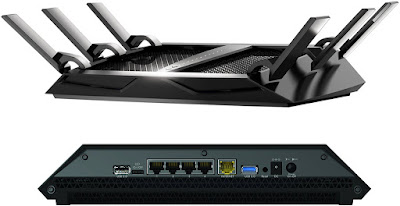 |
| Check List for Setting up a Small Business Wifi |
Consider the Cabling
If you are setting up more than a wireless router, you will have to run Internet cabling from the out of the router to each access point. Evaluate the cost and examine what it takes to hide unsightly cabling.You also should consider hard wiring computers to the router if you are going to doing a lot of sharing and transferring files via other local computers.
Check for Wireless Clients
You need to make sure that each computer you want on the wireless router has a Wi-Fi adapter. In addition, check which standards and speeds 802.11 wireless supports.
Choose a Standard Wireless
Once calculating or purchasing wireless adapters or access point, you should consider the 802.11 standards and speeds they support. There are 802.11b at 11 Mbps, 802.11g at 54 Mbps, 802.11a at 54 Mbps, and 802.11n at 450+ Mbps.
Each standard is interoperated with the others. As for maximum speeds and performance of 802.11n, you only need to use 802.11n for both the local computers and clients. A number of 802.11a, 802.11n wireless routers and access points are dual-band that means they can use 5GHz air-wave with less congested than 2.4GHz band.
Consider Wireless Internet for Visitors
In case that you want to offer Wi-Fi for your customers or public, considering a wireless router or access points will makes it easier. There are many wireless networks on the market which include the guest feature offering a separated Wi-Fi signal for public, so your private router is still secured.
For using multiple access points, considering which supports multiple virtual LANs and SSIDs. However, you also need a router or transfer that VLANs supports. To make it easier, you should limit the public access for wireless network and the access points are just for the private network.













